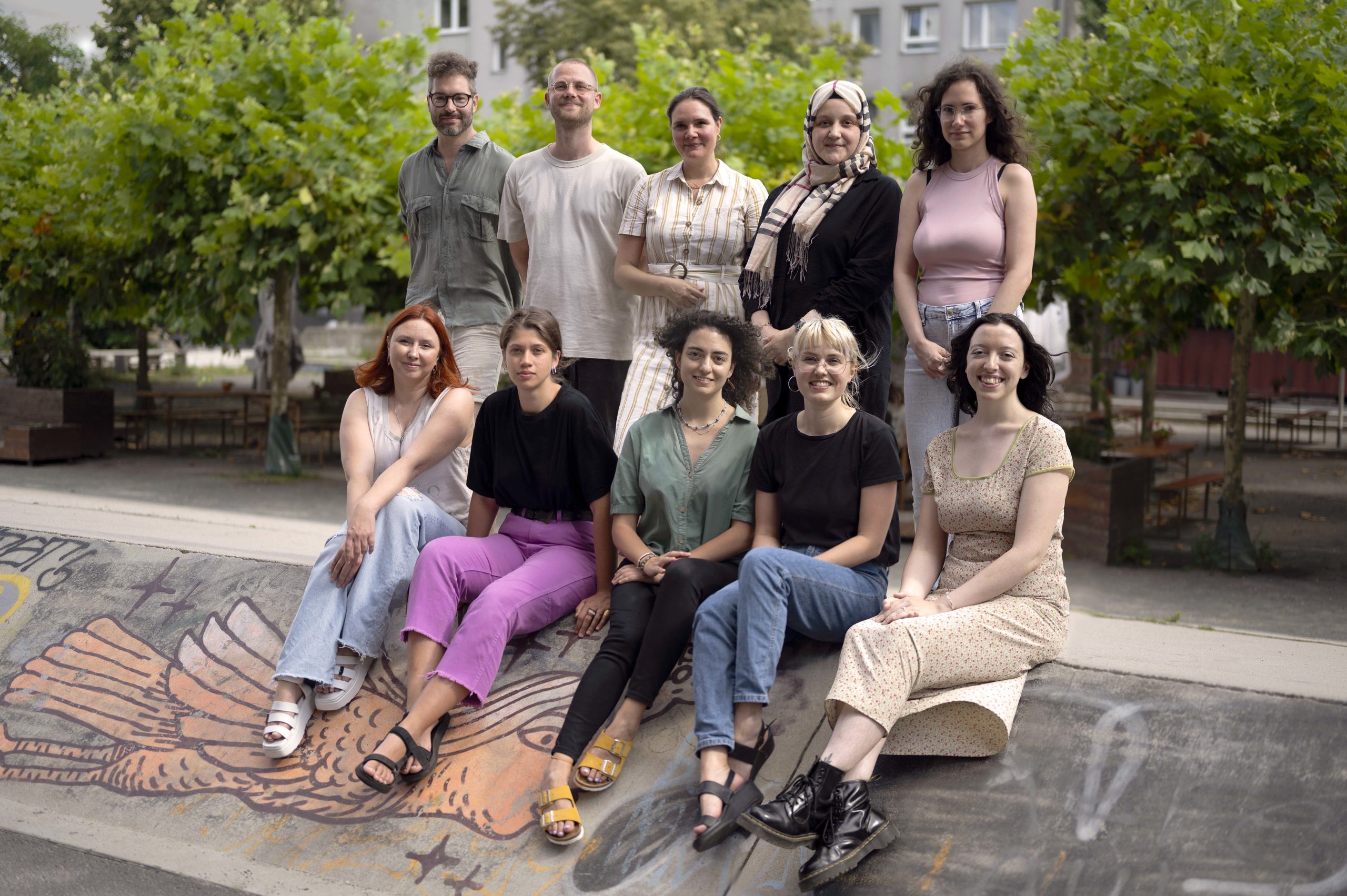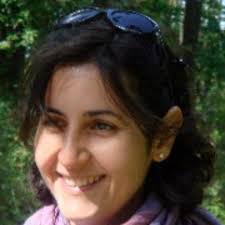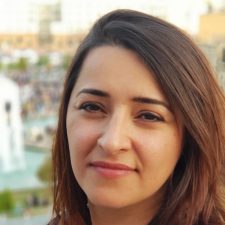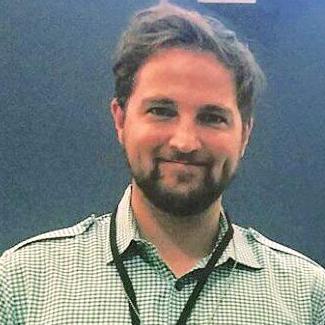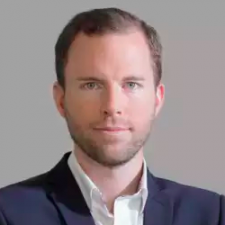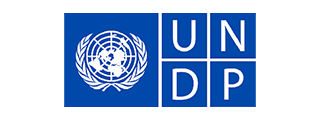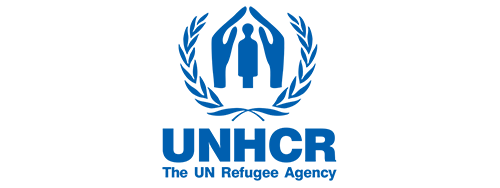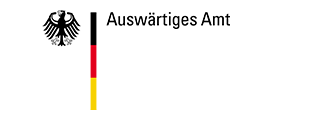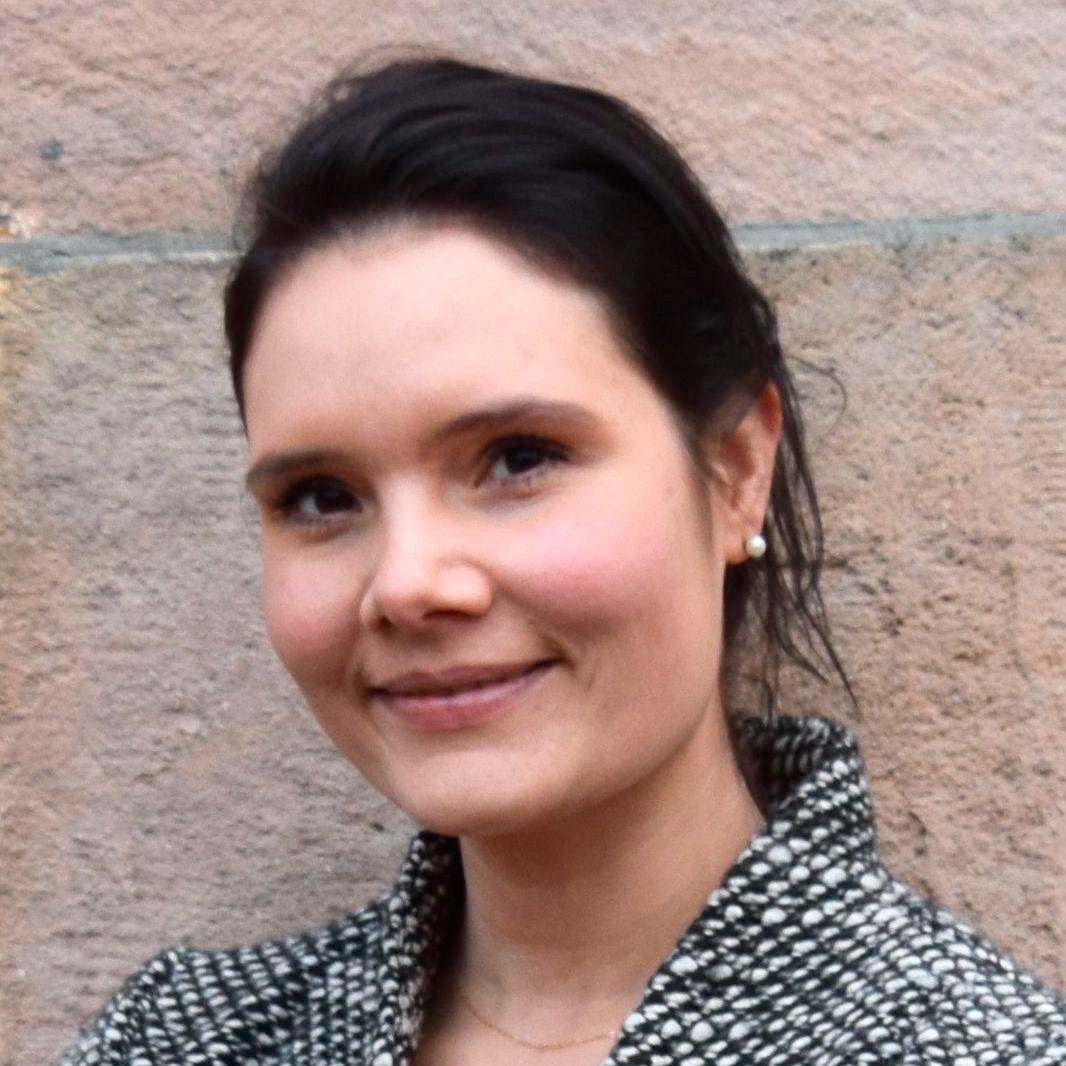We have come together with our diverse backgrounds and interests, inspired by a shared vision of a sustainable and just global community. We are engaged in development work, research, and activism, and have many years of experience in a wide range of non-governmental organisations, UN agencies, and research institutions. Our goal is to decentralise debates and actions, strengthen horizontal lines of communication, and foster genuine collaboration across all our projects.
From the left: Olena, Boris, Nataliia, Tim, Lena, Irene, Pia, Feride, Kristina, Clara. Anne and Ahmed are missing on the picture.
Dr. Lena Schmid
Managing Director
I am a psychologist by training and after completing my PhD in clinical psychology (University of Heidelberg, Germany), I worked for many years for various development actors in the US, Egypt, Iraq and South Sudan. My responsibilities at Hudara include representation, vision and strategy, organisational management, program design, and fundraising. I also work to develop and put in practice mental health and peaceful coexistence interventions using a community-based approach.
I am particularly interested in people's constructions of meaning and significance in their specific cultural, historical, and natural contexts that shape how they think, feel, want, and act, and I operate at the intersection of mental health and socio-political concerns. I believe that psychological work cannot be separated from social, political, and cultural discourse because human subjectivity always occurs within a particular environment. In addition to my clinical approach, I define myself as a cultural and community psychologist and thus focus on human diversity, social justice, and the importance of contextual factors in human experience and behaviour. Especially when working with people who have experienced war, violence and flight, it is critical to reflect that their psychological suffering cannot be understood without the socio-political conditionality of this suffering.
It is essential for me to explicitly acknowledge my values in my work and to look beyond the privileges that have resulted from my origins in the Global North. I experience situations in which it is not easy to put these values into practice, and I am convinced that our projects at Hudara are effective if, in addition to their content, they also always aim at social change processes and a more just and compassionate human interaction.
Prof. Dr. Boris Heinz
Head of Programme
It is my belief that an integrated approach to climate change mitigation and adaptation, with environmental, economic and development policies, is needed to address the extreme socio-ecological crisis that humanity - especially in the Global North - has created. While - tragically mostly for people in the Global South - coping with everyday life in a changing, hotter climate with frightening uncertainties has already become a harsh reality.
Mitigation and adaptation to climate change and the related aspects of vulnerability and resilience are much discussed, but the political implications are too often ignored. I think it is important to explicitly include aspects such as power relations and different types of inequalities related to climate change adaptation and mitigation in analyses and project activities. Mitigation and adaptation actions are not just of technological nature, but are driven by social processes in which actors at different levels negotiate knowledge, power, and different possible futures. We need to build new paradigms of North-South relations, changing concepts of locality, and increased global interactions, connections, collaborations, and movements.
This conviction has grown stronger over the past 15 years as I have worked at the United Nations and in research institutions on humanitarian and development projects in various countries. At Hudara, I am responsible for organisational management, fundraising and project conceptualisation and implementation in the area of climate change mitigation and adaptation. I am committed to initiating and implementing bottom-up actions that put concerned persons and communities at the centre.
I am also a professor of Community Energy and Adaptation to Climate Change at Technische Universität Berlin and a founding member of the Environmental Peacebuilding Association. I hold a master's degree in economics with a focus on climate and development policy from Humboldt Universität zu Berlin, a master's degree in environmental engineering from Technische Universität München, and a PhD in environment from Technische Universität Berlin.
Anne van Leeuwen
Operations Coordinator
I studied Cultural Anthropology and Arabic at the University of Amsterdam, Netherlands, and upon obtaining my MA degree in Religious Studies with a focus on Islam in the modern world, I moved to Cairo in 2011, right after the so-called Arab Spring resulted in the deposing of Egypt’s longest-serving president, followed by a period of intense social upheaval and unrest.
In my studies, I had a strong focus on the mutual influence of religion and state power and the impact of both on the legal context and the daily lives of people. During my time in Cairo, I have seen and lived by experience how persistent such existing structures of power are, but I have also seen how resilient people can be in carving out their own space of resistance to these structures of power. I believe that only through the engagement of normal people, from the ground up, social change is possible.
Professionally, I have worked in many different capacities, but have always loved applying my skills in the most practical way possible. In Hudara my role as Operations Coordinator is a supporting one, making sure that everybody can focus on their tasks without interruption.
Dr. Feride Nur Haskaraca Kizilay
Project Manager
I am a psychologist with a PhD from the University of Göttingen. My academic journey has been marked by a passion for understanding human cognition and behavior. My work has always been driven by a desire to apply rigorous scientific methods to address real-world problems, especially those faced by migrants and refugees. As an immigrant myself, I have firsthand experience of the challenges and opportunities that come with navigating new cultural landscapes. The blend of my research expertise and personal background has naturally led me to Hudara, where I now oversee the GEZUMI project and coordinate and conduct the accompanying research.
This project is dedicated to creating safe spaces for migrants and individuals with migration backgrounds in Germany. It operates in Berlin, Halle (Saale), and Frankfurt an der Oder, and aims to enhance the well-being of people with a migration background through supportive peer groups and cultural events. By facilitating interactions between local residents and newcomers, we strive to build trusting relationships that foster social cohesion and community resilience.
My role at Hudara allows me to integrate my academic insights with practical interventions, ensuring that our programs are both evidence-based and culturally sensitive. I am motivated by the belief that inclusive and supportive communities are essential for achieving sustainable development, social justice and smooth integration of minorities. Through my work, I hope to contribute to Hudara's mission of promoting mental well-being, peaceful coexistence, and environmental harmony.
Kristina Jadranović
Research Associate
Throughout my academic and practical experience, I have witnessed the benefits of psychological practice and research, which has motivated me to contribute to this field. At the same time, I have observed that mainstream psychology sometimes underestimates the role that social structures play in shaping the human experience. This can contribute to potentially harmful individualistic, pathologising and colonising narratives. Observing this tendency in the field of psychology has influenced my particular interest in exploring power relations, gendered realities and other social inequalities, and the role that they play in shaping human experiences and mental health. I believe that agency, resilience and resistance must be considered in order to have a complete picture of the human experience, mental-health and well-being. With a passion for research and a vision to contribute to the improvement of people’s lives and their communities, I work at Hudara as a Research Associate, supporting project implementation, research and monitoring and evaluation processes in projects related to mental health and social cohesion. Currently, I am focusing on supervising the implementation and accompanying research of a psychological group intervention and various activities in the field of social cohesion in the Rawabet project, which takes place in Mosul, Iraq. The approach involves the application and development of scientific knowledge, as well as ongoing processes of critical self-reflection on ethical issues, including cultural sensitivity, the role of power relations and privilege in research procedures, and the role that science plays in reflecting, as well as producing, narratives. In addition to this, I am a PhD candidate in psychology at the University of Belgrade, Serbia.
Tim Britton
Research Associate
With a degree in Renewable Energy Systems (Technical University Berlin, Germany), professionally, I have a technical background. However, I am convinced that every technical consideration is directly linked to a social and societal dimension and any problem-solving process must do justice to the underlying complexity. This is relevant for every context, and of fundamental importance when considering transitions on a global scale. I am interested in holistic approaches, through which technology, especially renewable energies, can be a tool in breaking down global injustices. I believe that bottom-up, community-energy approaches are an integral part to universal access to clean energy and are essential to climate justice.
At Hudara I am involved in projects addressing the shortcoming of energy access in displacement settings. Despite its fundamental importance, even the most basic energy services are not available to many displaced persons. The knowledge I have acquired in this field leads me to believe that a paradigm shift is necessary, in which the importance of energy access for a dignified life is truly acknowledged, and the approaches to achieving energy access are rethought from the bottom-up, putting the long-term wellbeing and empowerment of displaced persons in the centre of considerations. On a large-scale, this includes a continuous process of self-reflection and the questioning of existing power structures.
Ahmed Salahaldin
Project Manager
My journey unfolds against the backdrop of Iraq, where the echo of post-conflict struggles resonate deeply. Coming from this resilient place, I have borne witness to the challenges faced by those who have been forcibly displaced, the stories of refugees seeking safety, and the courage of returnees rebuilding their lives. After all the suffering, I am committed to contribute to overcoming the complex post-conflict scenarios. I am dedicated to humanitarian causes. My mission is intricately woven with the narratives of those seeking solace and renewal.
My professional journey in the humanitarian field began over five years ago, rooted in my deep sense of responsibility and optimism. In my work I aim to cultivate partnerships and collaborations that amplify the voices of the most vulnerable, fostering a sense of agency and ownership in the development processes that directly affect their lives. In essence, my future goals revolve around a holistic approach to humanitarian work — one that integrates expertise, innovation, and community engagement to create a sustainable and inclusive impact. Together with like-minded people, I am optimistic about the positive change we can bring to the landscapes of post-conflict Iraq and beyond. As Project Manager for the RAWABET project at Hudara, I am responsible for planning, implementing and managing of its activities and team, which is based in Mosul city in Northern Iraq.
The lessons learned, the bonds forged, and the challenges overcome propel me toward a future where our efforts foster hope, empowerment, and sustainable change. The true measure of impact lies in the lives touched, the smiles restored, and the collective strength we instil in the communities we serve. I am inspired by the transformative power of our work in providing those affected by displacement with a sense of hope, support and a tangible way forward.
Clara Tatlow - Devally
Communications Manager
As Communications Manager, I have the opportunity to collaborate with everyone on the team, to represent their work with pride and accuracy. While every project is unique - each context bringing with it its own challenges and history - at the heart of all Hudara interventions is a community-based approach. A way of working that aims to bring power and agency to community voices, putting the potential of change in the hands of those most affected. I value this interdisciplinary and critical approach while working in different, often marginalised and vulnerable, contexts. Interested in changing the narrative when it comes to communications in the non-profit and development sector, I aim to reject any method of storytelling that reinforces power dynamics. Through visual and textual language, I strive to produce genuine, research-driven, fact based narratives that represent people for who they are, in dignity. In University, where I obtained my degree in Jewish and Islamic Studies and Sociology (Trinity College Dublin), I explored power dynamics through theoretical frameworks and lived experiences, relying on intersectional and interdisciplinary theories to shape my work. I have experience working with NGOs in the fields of communications and research in Ireland, Jordan, Jerusalem and Berlin. Hudara’s community-based approach inspires and motivates me in my work, as I aim to bring sensitivity, creativity and compassion to my role as Communications Manager.
Irene Pérez Bornstein
Project Manager
My curiosity and passion for the underlying background of things and my interest in science and technology led me to study Physics (Autonomous University of Madrid). My interest in contributing to create a fairer world led me to study a master in International Cooperation (Polytechnic University of Madrid; Complutense University of Madrid). There I discovered my passion for the basic services sector (water and energy) and how necessary they are for the development of human life in conditions of dignity, health and security. At the end of my studies, I went to work in Senegal, where I spent 3 years living in different rural areas in the north and south of the country and in Dakar, the capital. During this time in the country I worked hand in hand with different local organisations and communities to improve access to basic services with a community and human rights based approach. This experience gave me first-hand knowledge of some of the complex challenges faced by millions of people every day, which require holistic solutions that address the problems with a specific and global perspective.
At Hudara, I work on various energy access projects in remote and displacement settings, such as islands and refugee camps, putting communities at the centre through a bottom-up and community based approach. I firmly believe in the power that renewable energies have to change the reality of people living in vulnerable conditions, as well as the benefits they bring in the fight against climate change.
Pia Gleich
Research Associate
With a background in International Relations and Integrated Natural Resource Management, interdisciplinarity has always been at the core of my academic journey. I firmly believe that only through inclusive, intersectional and interdisciplinary approaches, guided by diverse sources of knowledge, can we address the complex challenges of our present and future.
My research on community-based management of water resources in rural Cambodia sparked a deep interest in the community management of natural resources. This work led me to explore crucial questions of resilience, power dynamics, and the value of open-access resources. I am particularly passionate about the design of such arrangements to ensure that these are fair, beneficial to the affected populations and socially and ecologically sustainable.
In this context, I believe it is essential to break neo-colonial dependencies in development work and challenge dominant assumptions about knowledge production to foster genuine collaboration that is mindful of local contexts, ultimately bringing about change that truly supports the people it aims to help. At Hudara I am engaged in research on community-based approaches in relation to climate change adaptation.
Nataliia Voitova
Group facilitator
Olena Salii
Group facilitator
